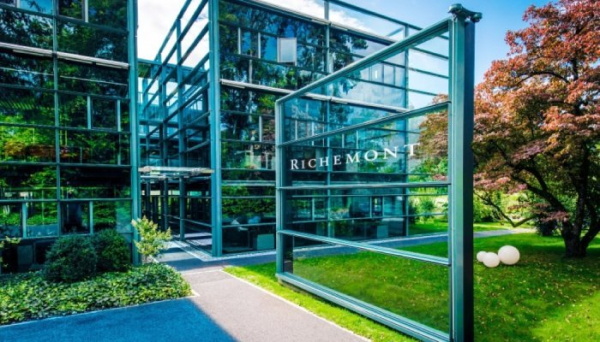
Cartier owner Richemont said on Wednesday, July 16, its sales revenue grew in the last quarter despite the effects of a strong euro and weak sales in Asia, its top market. In addition to Cartier, the Swiss luxury giant also owns high-end jewellery and watch brands such as Van Cleef & Arpels, Baume & Mercier, Jaeger-LeCoultre, Piaget, and Vacheron Constantin, as well as prestigious fashion and accessories labels including Alaïa, Chloé, Delvaux, Dunhill, and Montblanc.
The Swiss-based luxury group, one of the largest in terms of revenue, said overall sales rose by three percent in April through June to 5.4 billion euros (US$6.3 billion). But the weakness of the dollar bit into the increase, which otherwise would have been a six-percent gain.
The company posted double-digit sales gains in Europe, the Americas and the Middle East and Africa regions, both stripping out currency fluctuations and at actual rates, with jewellery driving the gains.
“The group’s four jewellery maisons — Buccellati, Cartier, Van Cleef & Arpels and Vhernier –- recorded an 11 percent rise in sales, marking a third consecutive quarter of double-digit growth,” the company said in a statement.
But a four-percent contraction in the Asia Pacific region and a 13-percent drop in Japan at current rates weighed on overall sales, as did a 10-percent drop in revenue from its specialist watchmakers division, which includes names such as IWC, Piaget and Vacheron Constantin.
The overall quarterly sales were in line with expectations of analysts surveyed by Swiss financial news agency AWP, although the leading jewellery segment performed slightly better than the experts expected.
Turbulent times
“Richemont has delivered reassuring results, particularly when compared to other luxury players,” said Jean-Philippe Bertschy, an analyst at Swiss investment managers Vontobel.
But he voiced caution about the sector overall, citing a persistent lack of a “feel-good factor” and ongoing low consumer confidence.
The US investment bank Jefferies said Richemont had posted “strong” quarterly results, and expected it to do so again in three months’ time, showing its “clear outperformance of luxury peers”, adding: “We doubt others will see the extent of US strength offsetting China/Japan weakness.”
In a study published last month, US management consultants Bain & Company warned that the luxury sector is likely to experience one of its most turbulent periods in 15 years in 2025 — excluding the shock of the Covid-19 pandemic, which was followed by a very strong rebound.
This is because the sector must cope with both the wait-and-see attitude of Chinese consumers, and significant uncertainty regarding US consumer spending, given the tariffs turmoil.
Looking at Richemont’s figures in detail, Jon Cox, an industry analyst with the Kepler Cheuvreux financial services company, said sales in the Americas were “particularly encouraging, while Europe remains strong”.
“However, China remains really poor and is far worse than expected at the start of the year for the luxury sector,” he added.
Like many other luxury houses, Richemont is aiming to broaden its customer base by investing in the perfume and cosmetics sector through more accessible product offerings. Following in the footsteps of its French rival Kering, the group announced the launch of a dedicated beauty division in 2023. Nevertheless, sales in this segment still account for only a small fraction of the group’s overall revenue.
